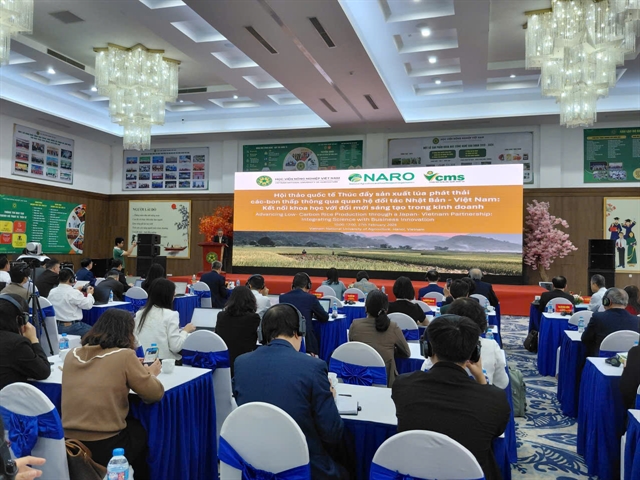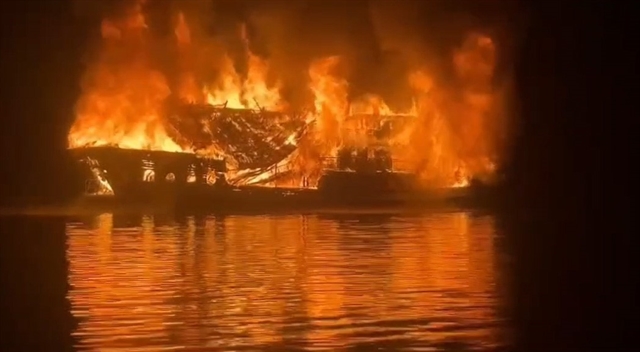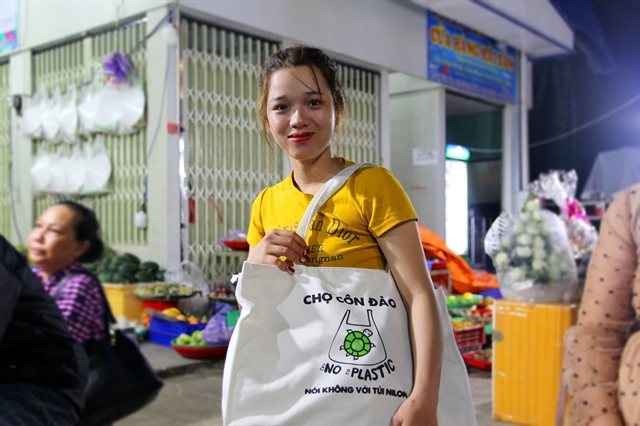 Environment
Environment

Local authorities of Côn Đảo Island district, off the coast of southern Bà Rịa-Vũng Tàu Province, in co-operation with the World Wildlife Fund for Nature (WWF), launched a Zero Plastic Waste programme, aiming to eliminate single-use plastic products.

|
| A woman shows a canvas bag as part of a programme to cut plastic bags and single-use plastic products on Côn Đảo Island of southern Bà Rịa-Vũng Tàu Province. — Photo courtesy WWF |
CÔN ĐẢO ISLAND — Local authorities of Côn Đảo Island District, off the coast of southern Bà Rịa-Vũng Tàu Province, in co-operation with the World Wildlife Fund for Nature (WWF), have launched a Zero Plastic Waste programme, aiming to eliminate single-use plastic products.
WWF said the programme, which involved 74 businesses from the district, aims to raise awareness among local islanders and tourists on reducing plastic bags and single-use plastic from their daily shop.
The programme offers support by providing free environmentally-friendly bags instead of plastic bags from shops.
Bags made from canvas are available at the Côn Đảo market desk.
Phạm Bảo Ân, an official from the island district’s nature resources and environment department said the island has contributed 70,000 tonnes of garbage to the Bãi Nhát dump, and has been polluting the environment and beach destinations.
He said the district and other agencies have been building a database on plastic bag and single-use plastic consumption to find the best solution to limit harmful plastic waste pollution.
Côn Đảo Island, 97 nautical miles off the coast of Vũng Tàu City, is home to 600ha of sea weed beds and 1,000ha of coral reefs.
Its pristine natural landscape has lured tourists to explore Côn Đảo Park and the natural reserve.
Côn Đảo National Park on Côn Đảo Island was recognised as an official member of the Indian Ocean-Southeast Asia (IOSEA), becoming the 11th member of the marine turtles conservation network in a meeting in 2019.
In Việt Nam, only the Chàm Islands – a World Biosphere Reserve site – is the first and most successful site banning the use of plastic bags among local islanders and tourists, while the ‘say no to single-use plastic straws and cups’ campaign was launched in early 2020.
A garbage sorting programme has been launched by the International Union for Conservation of Nature (IUCN) to reduce plastic waste at 12 Marine Protected Areas nationwide. It will help build a database on plastic waste and offer policy advice on how to reduce and control plastic waste and plastic production.
According to Greenhub, an NGO, waste can be found along beaches from northern Quảng Ninh Province to Côn Đảo Island in southern Bà Rịa-Vũng Tàu Province, while plastic waste accounts for 80 per cent of the total solid waste at 30 beaches in Việt Nam. — VNS




